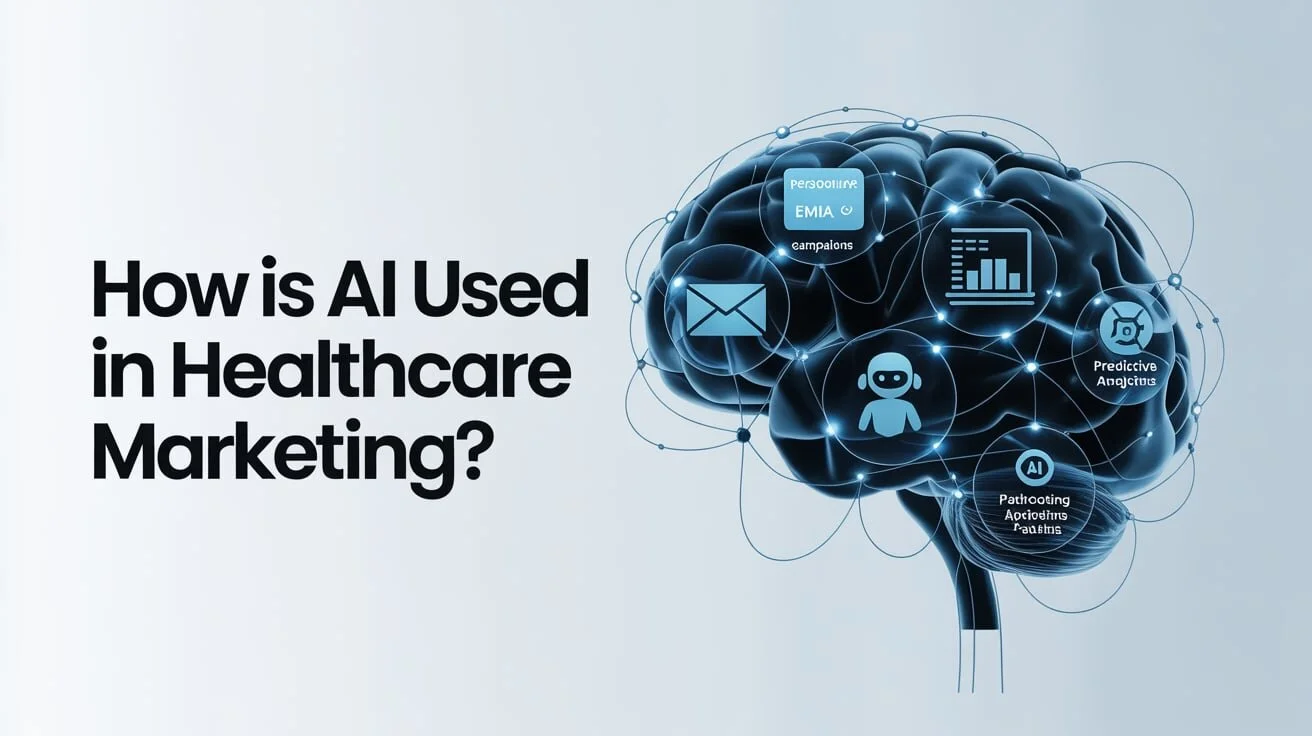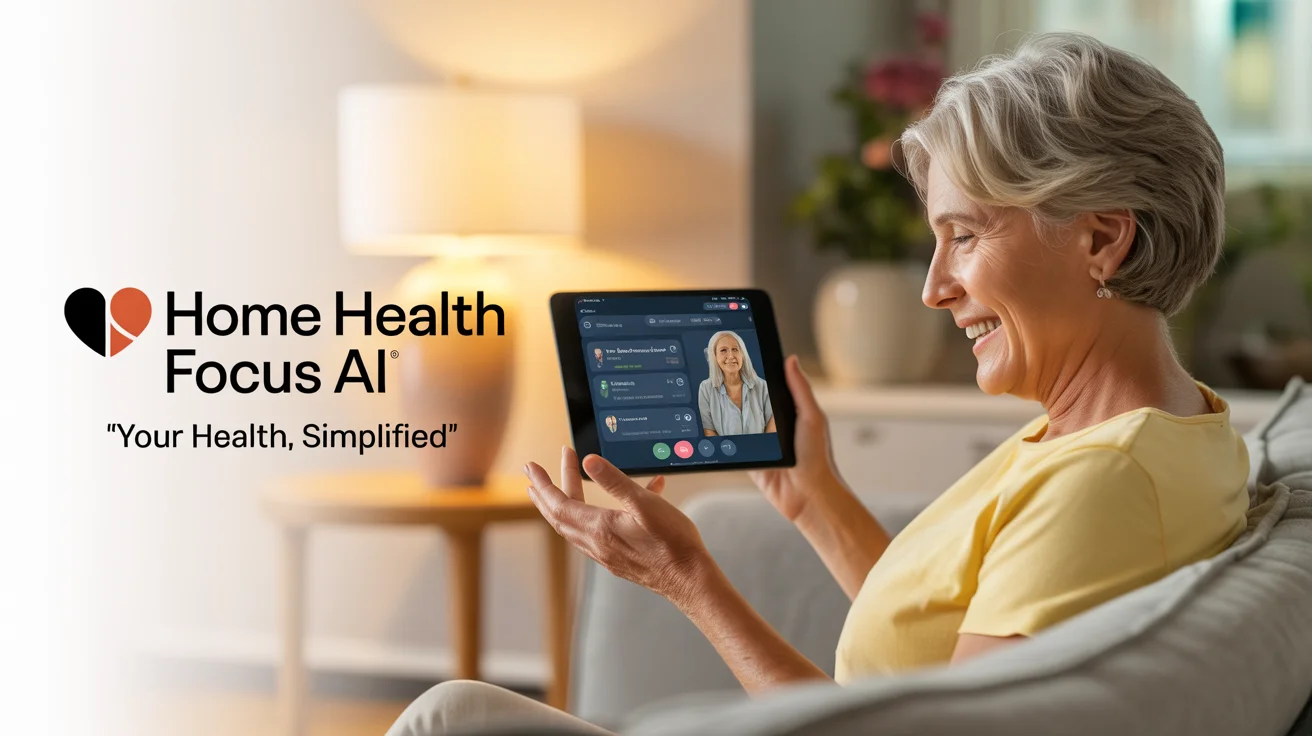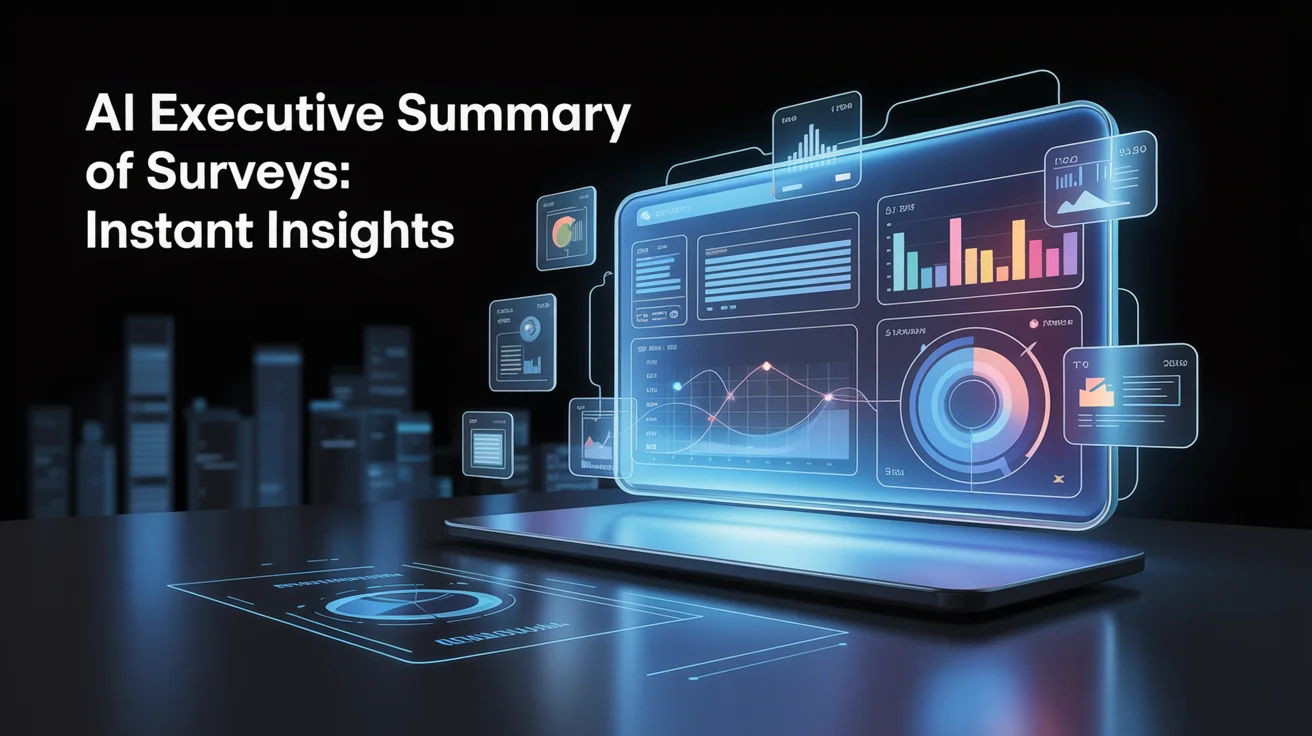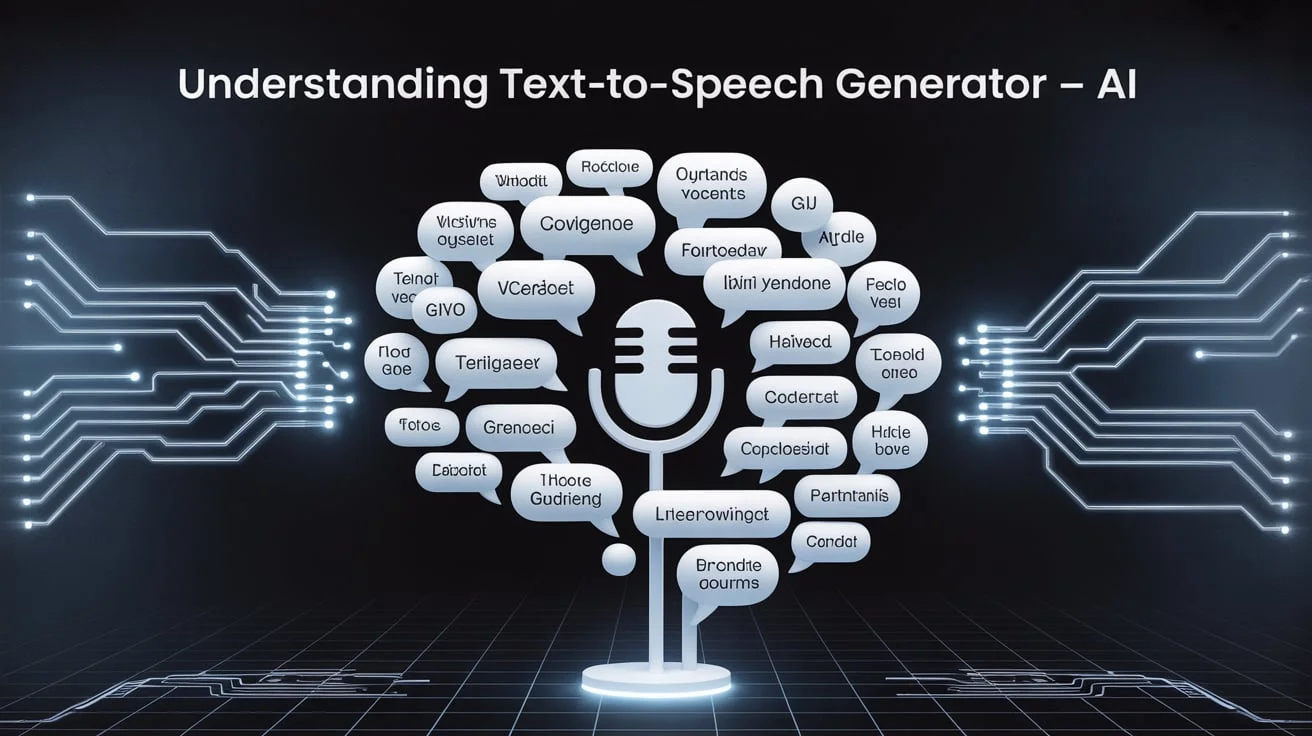The healthcare industry is evolving faster than ever, and artificial intelligence (AI) is one of the most powerful forces behind this change.
From improving patient engagement to streamlining content strategies, AI is reshaping how healthcare providers connect with their audiences.
In this blog post, we will explore how AI is used in healthcare marketing, exploring real-world applications, benefits, and strategic uses of this technology.
AI-Powered Patient Segmentation and Targeting
AI enables marketers to segment patients more accurately based on demographics, behavior, health conditions, and preferences.
Traditional segmentation methods often miss crucial patterns, but machine learning algorithms can identify micro-audiences and customize campaigns accordingly.
This precision helps marketers deliver relevant messages to the right people at the right time. It not only increases engagement but also improves ROI on marketing efforts.
AI can also predict patient behavior and anticipate their healthcare needs before they arise, creating a proactive rather than reactive marketing approach.
Personalized Content and Messaging
AI tools like natural language processing (NLP) and predictive analytics help create highly personalized messages that resonate with each individual. Instead of sending one-size-fits-all campaigns, marketers can now customize content for different patient journeys.
AI also adapts language tone and message delivery across platforms like email, websites, and social media, ensuring consistency while optimizing for conversions.
AI tailors blog posts, newsletters, and appointment reminders by analyzing real-time data to meet patient expectations.
AI-Driven Marketing Automation and Campaign Optimization
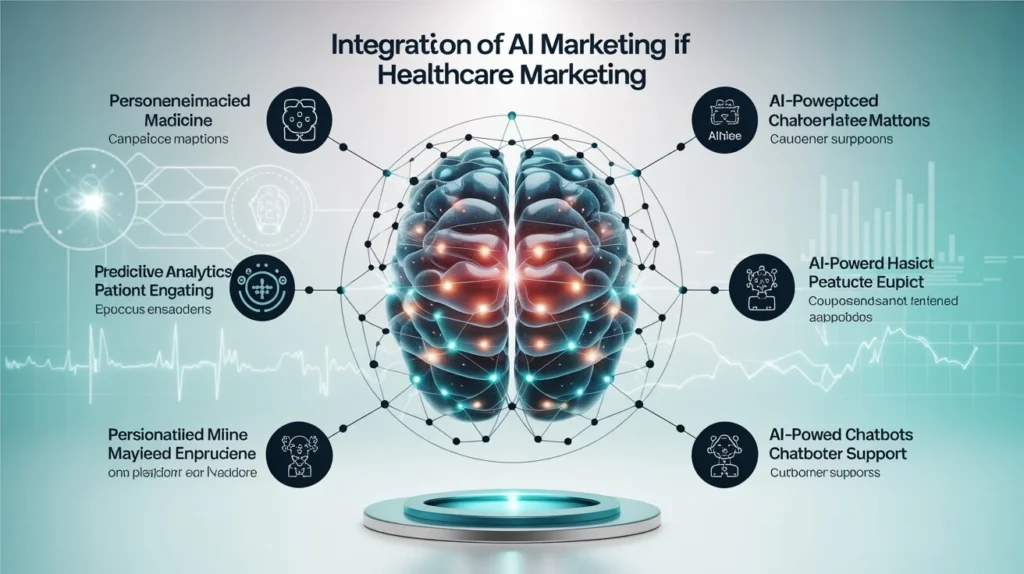
Marketing automation powered by AI is a game-changer in healthcare. It allows seamless execution of marketing campaigns across multiple channels with minimal manual effort. AI algorithms optimize email schedules, automate social media posting, and refine advertising bids.
With this level of automation, healthcare marketers can focus more on strategy and less on repetitive tasks. AI tracks campaign performance, suggests improvements, and even automatically A/B tests different ad creatives.
Some common benefits of AI in marketing automation include:
- Increased efficiency and reduced human error
- Real-time campaign adjustments based on patient engagement
- Cost-effective advertising through data-driven decisions
Enhancing Chatbots and Virtual Assistants for Patient Engagement
AI-powered chatbots are being widely adopted in healthcare marketing. These bots answer queries 24/7, guide users through services, and help with appointment scheduling. They enhance user experience and allow human staff to handle more complex tasks.
Many healthcare websites now use chatbots that understand natural language and provide helpful, personalized responses. This creates trust and boosts satisfaction.
Some features of healthcare chatbots include:
- Automated patient support for common FAQs
- Instant appointment booking and rescheduling
- Multi-language communication support
Predictive Analytics to Improve Marketing Strategy
AI uses historical data and machine learning to forecast future trends in patient behavior, search intent, and service demand. This allows marketers to make data-backed decisions when planning campaigns.
For example, AI might predict flu season spikes based on past data and search trends. Marketers can then launch timely campaigns promoting flu shots or consultations.
These AI insights help in:
- Forecasting seasonal service demands
- Identifying underperforming campaigns early
- Understanding shifting patient interests
AI in Social Listening and Reputation Management
Social media plays a big role in healthcare marketing today. AI tools can scan thousands of posts, reviews, and comments to understand public sentiment, a process known as social listening.
AI identifies what patients are saying about hospitals, doctors, and treatments. Marketers can then address concerns, reply in real-time, and strengthen the brand’s online presence.
AI can detect early warning signs of reputation risks and instantly alert marketing teams.
Visual Recognition for Medical Marketing Content
AI image recognition tools can analyze medical images and generate visuals for educational content. This adds authenticity to marketing materials while ensuring they remain medically accurate.
These visuals help in building trust, especially for complex medical procedures. They are also used in ads, blogs, and social campaigns to educate and engage audiences visually.
Dynamic Website and App Personalization
AI makes websites and mobile apps smarter. When users visit a healthcare website, AI tracks their journey and dynamically adjusts the content to suit their interests or health conditions.
This might include showing tailored recommendations, highlighting relevant doctors, or suggesting blog articles that match their search queries.
Key benefits of AI-driven personalization:
- Better conversion rates through relevant content
- Reduced bounce rates and increased session times
- Enhanced user experience across devices
Content Creation and SEO Optimization with AI
AI tools like GPT and other NLP-based platforms help create keyword-optimized content for healthcare blogs, FAQs, service pages, and landing pages. These tools ensure the content is explicit, relevant, and search engine-friendly.
AI also assists in optimizing meta tags, headers, readability, and keyword placement, boosting overall SEO performance.
Some ways AI supports SEO in healthcare marketing:
- Automated keyword clustering for better topic coverage
- Competitor analysis and content gap identification
- Semantic keyword integration for Google’s NLP algorithms
Data-Driven Decision-Making with Real-Time Dashboards
AI provides real-time dashboards that offer insights into patient journeys, ad performance, engagement rates, and conversion metrics. Healthcare marketers use these insights to adapt campaigns quickly.
These dashboards compile data from CRM systems, websites, call centers, and ads to provide a complete picture of what’s working.
Advantages of AI-powered dashboards:
- Real-time insights for agile decision-making
- Simplified reporting and performance tracking
- Better alignment between marketing and patient care goals
Conclusion:
AI is not just a trend; it’s a critical tool in modern healthcare marketing. From improving personalization to enabling data-driven decisions, AI helps healthcare providers connect with their audience more meaningfully and efficiently.
As technology continues to evolve, the role of AI in healthcare marketing will only grow stronger.
This article explored how AI is used in healthcare marketing through real examples and actionable insights.
By embracing AI, healthcare brands can stay ahead in a competitive market, provide better patient experiences, and drive higher returns on their marketing investments.
Frequently Asked Questions:
Q1. What is the role of AI in healthcare marketing?
AI helps healthcare marketers target the right audience, personalize content, automate campaigns, and improve ROI.
Q2. Are AI chatbots safe for patient communication?
Yes, AI chatbots in healthcare follow strict data security protocols designed to comply with HIPAA guidelines.
Q3. Can AI improve healthcare website SEO?
Absolutely. AI helps optimize content, keywords, and technical SEO for better visibility in search engines.
Q4. Is AI replacing human marketers in healthcare?
No. AI supports marketers by automating tasks and providing insights, but creative and ethical decisions still need human input.
Q5. How is AI used in healthcare marketing?
AI is used in healthcare marketing to personalize patient messages, predict behavior, automate campaigns, and analyze data for better targeting.

